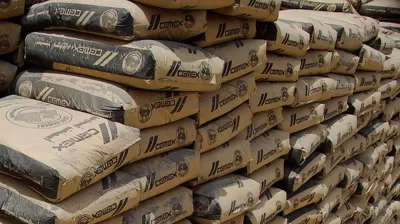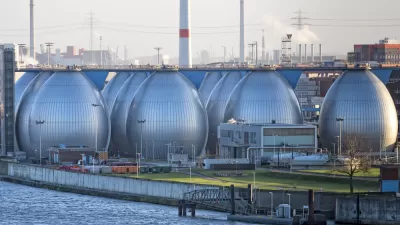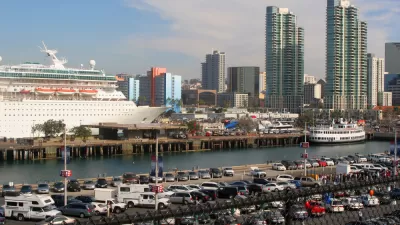A sand mine that has been operating since the very beginning of the 20th century has finally been shut down by California regulators. The site of the facility will be returned to more natural conditions.

Paul Rogers reports: "The last coastal sand mine in the United States, a Monterey Bay plant that scientists say has caused significant erosion of beaches in the area, will close in three years under a settlement agreement announced Tuesday with California officials."
The facility, the CEME Lapis plant has been operating with a license from the state, "claiming that its operations pre-date state laws such as the 1976 Coastal Act," according to Rogers. The facility produces an estimated 200,000 to 300,000 cubic yards of sand a year.
The turning point in the state's protracted battle against the facility came in May 2017, when the California State Lands Commission threatened legal action against the company. "The company already was under investigation from the California Coastal Commission and was facing years of protracted litigation and potential fines," according to Rogers.
For more on the end of the last coastal sand mine in the United States from the standpoint of some of the advocates who fought the facility, see a post by Jennifer Savage for the Surfrider Foundation.
FULL STORY: Controversial beachfront sand mining operation along Monterey Bay to close

Planetizen Federal Action Tracker
A weekly monitor of how Trump’s orders and actions are impacting planners and planning in America.

San Francisco's School District Spent $105M To Build Affordable Housing for Teachers — And That's Just the Beginning
SFUSD joins a growing list of school districts using their land holdings to address housing affordability challenges faced by their own employees.

The Tiny, Adorable $7,000 Car Turning Japan Onto EVs
The single seat Mibot charges from a regular plug as quickly as an iPad, and is about half the price of an average EV.

Seattle's Plan for Adopting Driverless Cars
Equity, safety, accessibility and affordability are front of mind as the city prepares for robotaxis and other autonomous vehicles.

As Trump Phases Out FEMA, Is It Time to Flee the Floodplains?
With less federal funding available for disaster relief efforts, the need to relocate at-risk communities is more urgent than ever.

With Protected Lanes, 460% More People Commute by Bike
For those needing more ammo, more data proving what we already knew is here.
Urban Design for Planners 1: Software Tools
This six-course series explores essential urban design concepts using open source software and equips planners with the tools they need to participate fully in the urban design process.
Planning for Universal Design
Learn the tools for implementing Universal Design in planning regulations.
Smith Gee Studio
City of Charlotte
City of Camden Redevelopment Agency
City of Astoria
Transportation Research & Education Center (TREC) at Portland State University
US High Speed Rail Association
City of Camden Redevelopment Agency
Municipality of Princeton (NJ)





























